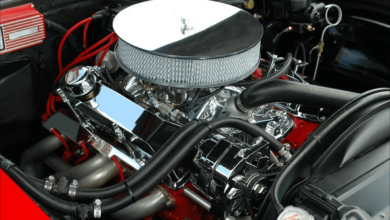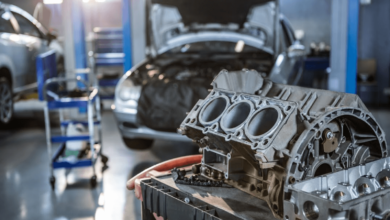DC Car Inspection: What To Expect And How To Prepare

Keeping your car in good repair is important for ensuring safety on the roads. To make sure your car is up to the standards of the District of Columbia, a DC cars inspection is required. While this process may seem daunting, it’s relatively simple and straightforward if you know what to expect and how to prepare. In this blog post, we will explore the DC car inspection process in detail. From identifying a registered inspection station to understanding what to expect during the examination, read on to learn more about the process and how to get ready for your own DC cars inspection.
What is a DC car inspection?
If you own a vehicle in the District of Columbia, you are required to have it inspected once a year. The DC car inspection process is designed to ensure that your vehicle is safe to operate on the roads and meet minimum safety standards.
The inspection process begins with an examination of your vehicle’s exterior. The inspector will look for any damage or defects that could affect the safety of your vehicle. They will also check your tires, brakes, and other vital components.
Once the exterior inspection is complete, the inspector will move to the interior of your vehicle. Here they will check all of the controls and gauges to make sure they are working properly. They will also test your horn and lights to ensure they are functioning correctly.
After the interior inspection is finished, the inspector will take your vehicle for a test drive. During this drive, they will pay close attention to how your vehicle handles and braking performance.
Once the test drive is complete, the inspector will give you a report of their findings. If any repairs or maintenance are needed, they will be noted on this report. You will then have 30 days to make any necessary repairs or adjustments before your registration expires.
When you come in for your car inspection, please make sure to bring the following:
-Your vehicle
-Your registration
-Your proof of insurance
-Your driver’s license
-Any relevant repair receipts
-The cash or check required for payment
As required by the District of Columbia, all vehicles must pass an inspection before being registered. The inspection process is designed to ensure that all vehicles on the road are safe and meet minimum standards.
During the inspection, the inspector will check the vehicle’s:
-Tires
-Brakes
-Lights
-Windshield wipers
-Exhaust system
-Registration and insurance papers
The inspector will also make sure that the vehicle’s VIN (vehicle identification number) matches the one on the registration papers. If any of these items do not meet the minimum requirements, the vehicle will fail inspection.
How can I prepare my car for inspection?
If your vehicle is due for inspection, there are a few things you can do to prepare. First, check your vehicle’s fluids and make sure they are at the proper levels. You should also check your tires to ensure they have enough tread and are properly inflated. Lastly, give your vehicle a good cleaning inside and out- this will make it easier for the inspector to see any potential issues. If you take care of these things before your inspection, you’ll be one step closer to passing!
How often do I need to get my car inspected in DC?
In DC, cars must be inspected once a year. The inspection is valid for one year from the date of the last inspection.
To prepare for your car inspection, make sure your vehicle is clean and all fluid levels are topped off. You should also bring your registration paperwork with you to the inspection. Read more…
Conclusion
DC car inspections are an important part of keeping your vehicle safe and up to date. By knowing what to expect ahead of time, you can ensure that the process goes as smoothly as possible. Be sure to bring all required documents and have your car prepared for a thorough inspection by a qualified inspector in order to pass with flying colors! With these tips in mind, you can feel confident that you’ll be ready for DC cars inspections every year.






